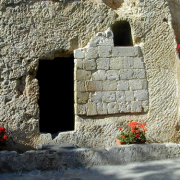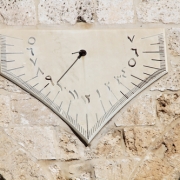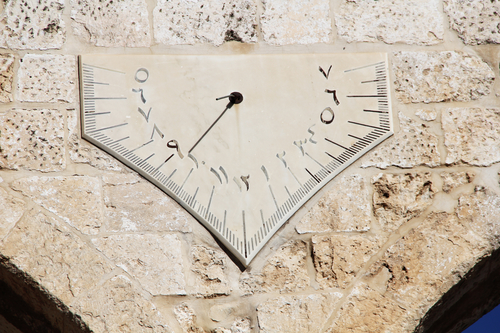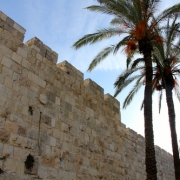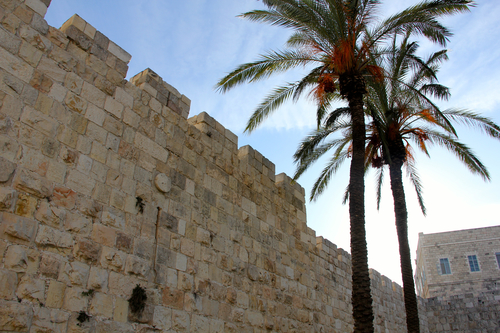Primicias de la resurrección
Mas ahora Cristo ha resucitado de los muertos; primicias de los que durmieron es hecho. Porque por cuanto la muerte entró por un hombre, también por un hombre la resurrección de los muertos. Porque así como en Adán todos mueren, también en Cristo todos serán vivificados. Pero cada uno en su debido orden: Cristo, las primicias; luego los que son de Cristo, en su venida. (1 Corintios 15:20-23)
En 1 Corintios 15, Pablo explicó la verdad de la resurrección, comenzando con Jesús. Luego explicó cómo la resurrección de Jesús se conecta directamente con nosotros: que Jesús se ha convertido en las primicias de los que durmieron.
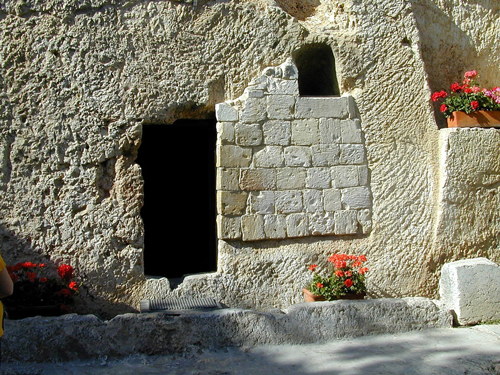
Primicias traduce la antigua palabra griega aparche. En relación con el Antiguo Testamento, esta palabra se usó para la ofrenda de sacrificio de las primicias. En la vida diaria también se usaba para una tarifa de entrada.
Jesús fue primicias de nuestra resurrección en ambos sentidos. En el Antiguo Testamento, la ofrenda de primicias trajo un manojo de grano para representar y anticipar la cosecha completa (Levítico 23: 9-14). La resurrección de Jesús representa nuestra resurrección, porque si fuimos plantados juntamente con él en la semejanza de su muerte, así también lo seremos en la de su resurrección (Romanos 6: 5). La resurrección de Jesús anticipa nuestra resurrección, porque seremos resucitados con un cuerpo como el suyo.
La resurrección de Jesús también es primicias de nuestra resurrección en el sentido de que Él es nuestra “tarifa de entrada” a la resurrección. ¡Jesús pagó nuestra admisión a la resurrección!
Pablo continuó: “Porque por cuanto la muerte entró por un hombre, también por un hombre la resurrección de los muertos”. La idea es que Adán (por un hombre) es una “cabeza” de la raza humana, y toda la humanidad fue llevada a la muerte por Adán. El segundo Adán, Jesucristo (por un hombre) es la otra cabeza de la raza humana, y Jesús trae la resurrección a todos los que están “bajo” su liderazgo.
Todo sucede, “cada uno en su debido orden”. Sería extraño e inapropiado para nosotros recibir la resurrección antes que Jesús. Entonces, Él recibe la resurrección primero como las primicias, y luego nosotros la recibimos “luego. . . en su venida”.
Jesús es primicias de nuestra resurrección; Sin embargo, no fue el primero de resucitar de entre los muertos. Leemos acerca del hijo de la viuda en los días de Elías (1 Reyes 17: 17-24) y Lázaro (Juan 11: 38-44) y Eutico (Hechos 20: 7-12), entre otros. Cada uno de estos fue resucitado de la muerte, pero no como Jesús resucitó. Cada uno de ellos fue resucitado en el mismo cuerpo en el que murieron y eventualmente murieron de nuevo.
La resurrección no es solo vivir de nuevo; es vivir de nuevo en un nuevo cuerpo. El nuevo cuerpo se basa en nuestro antiguo cuerpo, pero es perfectamente adecuado para la vida en la eternidad. Jesús no fue el primero que regresó de entre los muertos, pero fue el primero en resucitar.
Cuando confiamos en Jesús, su resurrección se convierte en la promesa de la nuestra.
Haz clic aquí para el comentario de David sobre 1 Corintios 15

